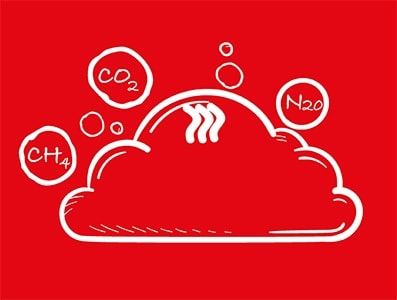
-
Global/EN
- Global
- North America
- Latin America
With the world’s population expected to reach 9.7 billion by 2050, aquaculture will need to increase production by 30–40 million tons p.a. by 2030 to keep up with the current rate of consumption.
Today, 3 billion people worldwide rely on seafood as their main source of protein. However, one third of ocean fisheries are currently overfished, and two thirds are fished to their maximum sustainable yield.
Only aquaculture can fill the gap. However, one major constraint to the growth of aquaculture is the industry’s reliance on marine ingredients used in the feed, principally fish meal and fish oil, with the latter being critical. Fish oil contains the key omega-3 fatty acids EPA and DHA, which are important not only for fish health and development, but also for the nutritional value of the final product for human consumption.
Fish oil, and in particular omega-3 EPA and DHA, is a finite natural resource derived from the capture of wild, oily fish such as anchovies, sprat and capelin.
Each year, approximately 16 million tons of oily fish, or 17% of the world’s fisheries, are captured and processed into about 5 million tons of fish meal and 1 million tons of fish oil, of which a mere 200,000 tons are made up by the important omega-3 fatty acids EPA and DHA. And about 75% of this is used in aquaculture feeds.
Owing to the finite nature of these fatty acids, the salmon industry has had to reduce its use of this resource in order to maintain sufficient supplies to enable the industry to continue growing and keep up with the strong consumer demand for salmon.
However, this has led to a 50% decline in the levels of omega-3 EPA and DHA in salmon fillets, whether of Norwegian, Scottish, Chilean or Tasmanian origin.
This reduction in the nutritional value of salmon is a key concern for the value chain. Consumers purchase salmon for several reasons, but it is mainly the healthy omega-3 content in salmon that is the key motivation.
Finding alternative sources of these precious omega-3 resources is therefore a top priority for aquaculture in general and for the salmon industry in particular.
We help reduce the aquaculture industry’s reliance on marine resources through our Veramaris® technology and nutritional solutions that allow alternative raw material use in aquaculture diets. Veramaris® produces the two essential omega-3 fatty acids EPA and DHA from natural marine algae. Our sustainable technology can help replace fish-based ingredients for a variety of aquaculture species.
And we do this at scale: We are able to produce sufficient EPA and DHA to cover 15% of the global salmon industry’s annual demand. This is equivalent to the amount of omega-3 EPA and DHA derived from 1.2 million tons of wild caught fish. To put this into perspective the annual wild catch of the Mediterranean sea is 0.8 million tons.
By bringing such scale to the aquaculture industry, we reduce the pressure on wild fish stocks and help improve the sustainability of wild fisheries and the aquaculture industry. At the same time we enable the industry to raise the levels of omega-3 EPA and DHA in the fillet for more nutritious seafood.
We also help reduce aquaculture’s reliance on fish meal, another finite marine resource, that is used extensively in aquaculture feeds.
Our extensive feed enzyme solutions improve the digestibility and nutritional value of alternative plant-based feed raw materials. As aquaculture grows, the use of finite fish meal resources comes under pressure and alternative high concentration, highly digestible protein sources are being sought by the industry. The aquaculture industry is continually looking for alternative proteins such as plant, insect and single cell proteins. In warm water aquaculture feed enzymes enable a significant reduction in fish meal and greater use of alternative plant raw materials thereby enabling greater flexibility in feed formulation and less reliance on marine resources.